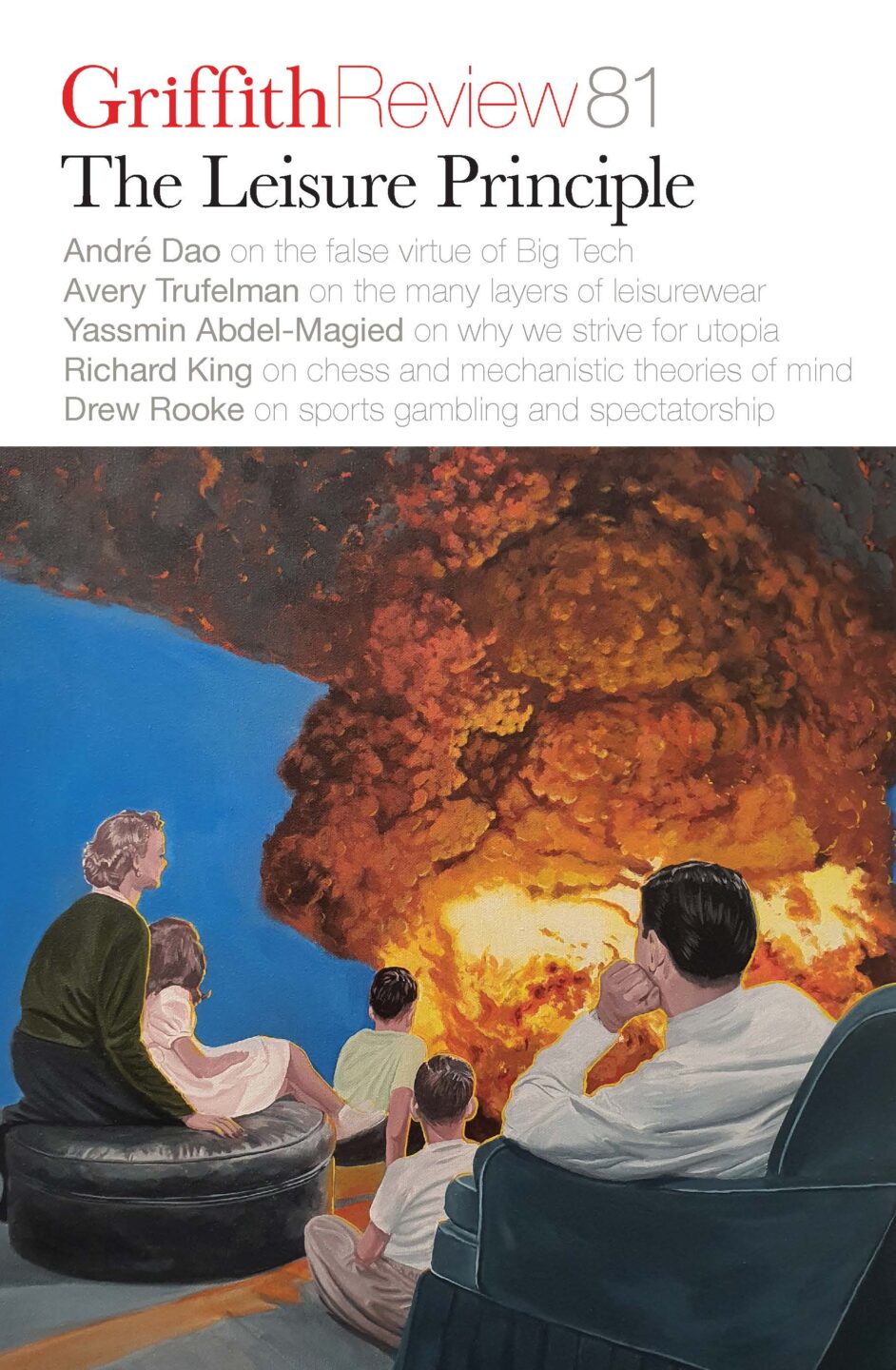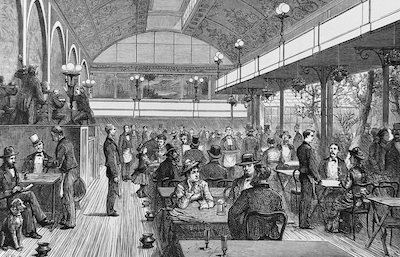Featured in

- Published 20230801
- ISBN: 978-1-922212-86-3
- Extent: 200pp
- Paperback (234 x 153mm), eBook


Already a subscriber? Sign in here
If you are an educator or student wishing to access content for study purposes please contact us at griffithreview@griffith.edu.au
Share article
More from author

Shelf life
Shelves provide functional storage. But as we learnt from the setting of all those Covid lockdown interviews – the expert in front of their books, photographs and tchotchkes – shelves express personality, achievement and erudition. As those same interviews demonstrated, sometimes our best curatorial efforts might miss something too revealing about what we really read and truly value. For the Victorians, who were obsessed with privacy and established many of the norms around middle-class dwelling that continue to influence aspects of contemporary domesticity, shelves posed a particular problem precisely because you could never be sure who was looking at them and what kind of conclusions they might reasonably draw.
The great British architect of middle-class respectability, Robert Kerr, designed homes where privacy was the paramount and exalted objective, achieved through a complex network of ever more enclosable spaces designed to protect property and personal information from the apparently insatiable curiosity of servants.
More from this edition

The rise and decline of the shopping mall
FictionPerhaps it is instructive to consider how archaeologists of the future may conceive malls. How might they seem, these empty labyrinths – like rituals that had to be endured in order to receive goods and services? As great monoliths, colosseums constructed for our entertainment? As places of worship? Or perhaps malls will seem more like pyramids do to us: mysteries to be unravelled when the tracks of global trade and communication have faded...

Revolutionary wave
Non-fictionThis was the late ’60s, early ’70s and surfing in Wales was regarded by the parent generation as delinquency. It was for losers, layabouts, rogue males. In those early days Welsh surfers numbered around one hundred, congregated on half a dozen beaches down fifteen miles of coastline west of Swansea, known as the Gower. I knew each one of those surfers by the styles they deployed on the waves. So idiosyncratic was early Welsh surfing that out on the road if you saw a car with boards on the roof coming at you, both drivers would pull over for a chat.

At the subway station
Poetry In a world of cunning shadesI’m the only sleuth. I hop on the train bound for a futureI’ve been hired to investigate. For a moment all...